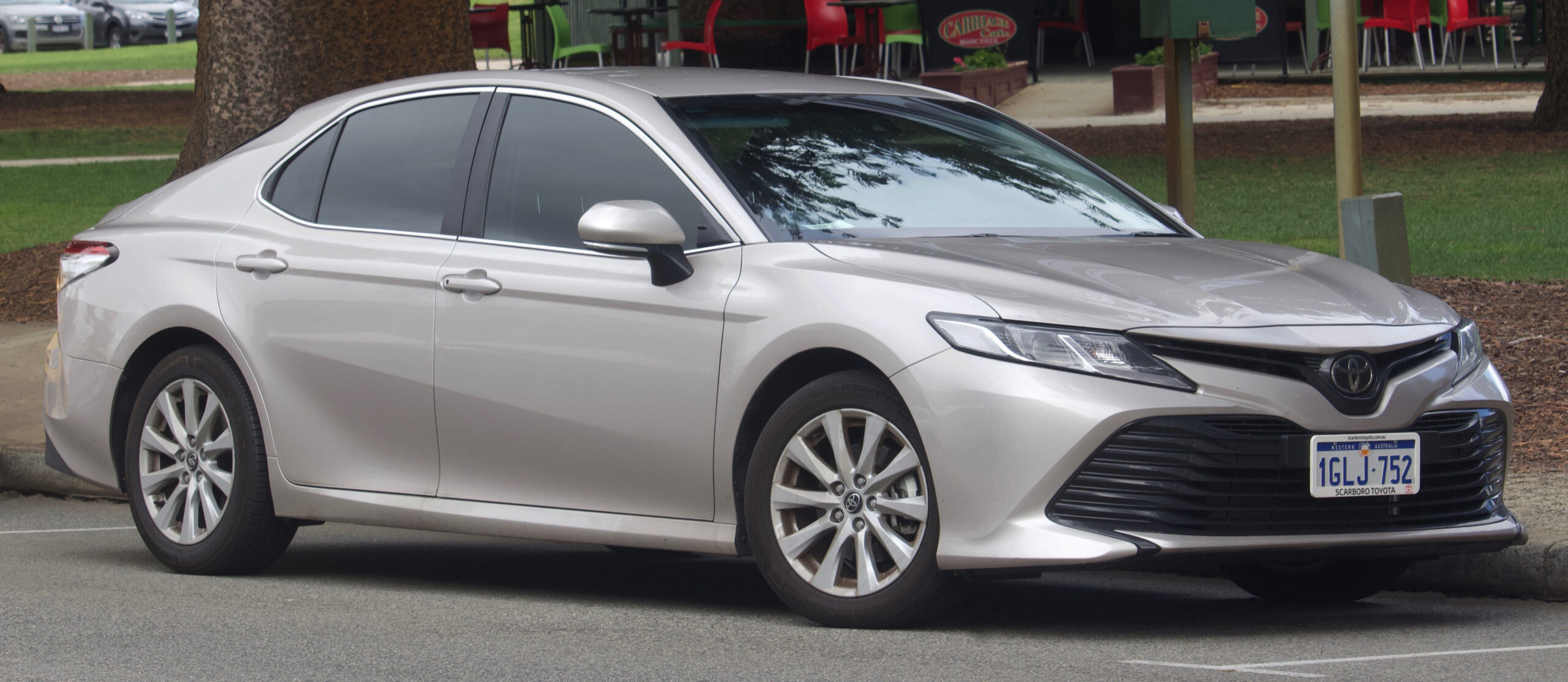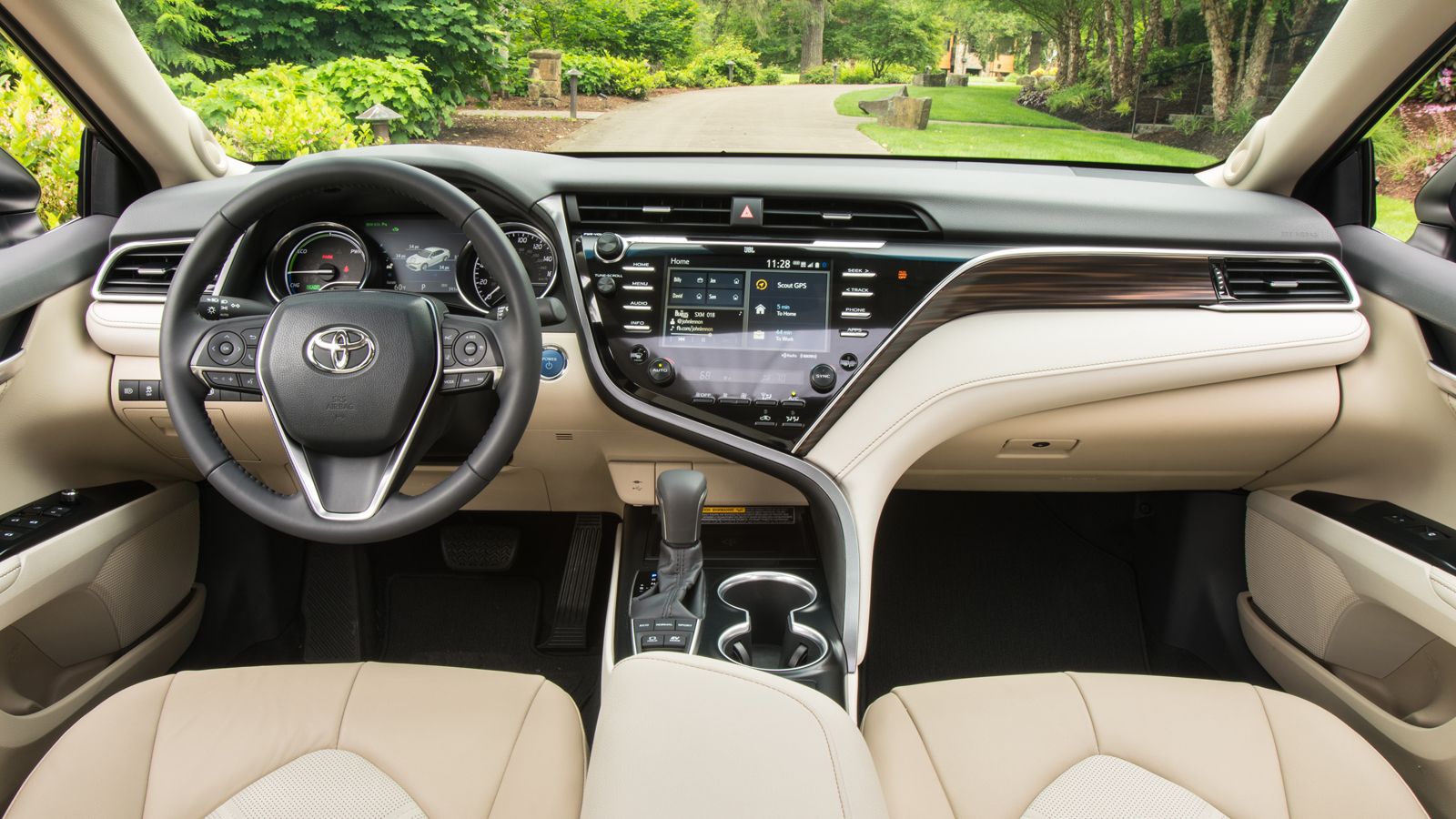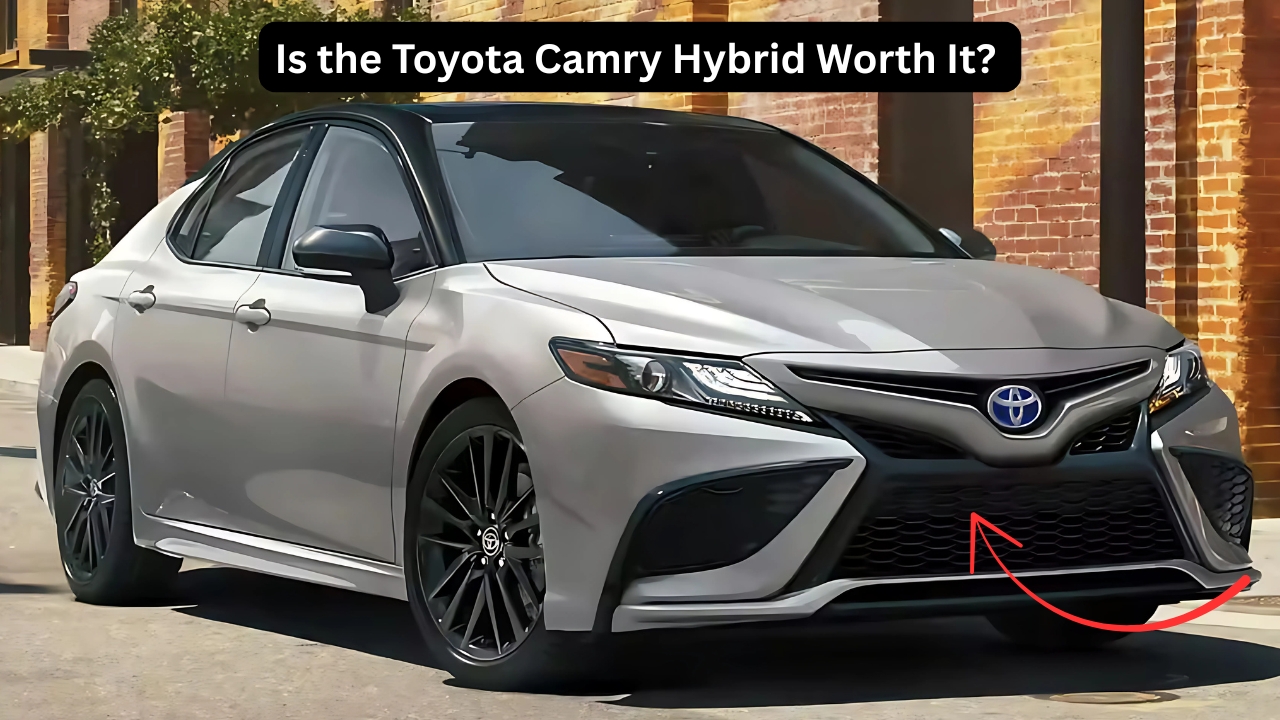Toyota Camry Hybrid : The automotive landscape has shifted dramatically, and nowhere is this more evident than in Toyota’s bold decision to make the 2025 Camry exclusively hybrid.
This move signals confidence in hybrid technology while addressing growing consumer demand for fuel-efficient vehicles. But does this transformation make the Camry Hybrid a smart purchase? Let’s dive deep into the numbers, real-world performance, and value proposition.
Understanding the 2025 Camry Hybrid Revolution
Toyota made headlines by eliminating all non-hybrid options from the Camry lineup for 2025. This isn’t just a minor update—it’s a complete strategic shift that positions the Camry as a leader in mainstream hybrid adoption. The decision reflects Toyota’s confidence in their fifth-generation hybrid system and acknowledges that hybrid technology has matured beyond early adopter appeal.
The transformation brings both opportunities and challenges. While buyers no longer have cheaper non-hybrid options, they automatically receive hybrid efficiency and performance that previously required a premium. This democratization of hybrid technology represents a significant value shift in the midsize sedan market.
Price Analysis: What You’re Really Paying For
Current Pricing Structure

The 2025 Toyota Camry price starts at $29,495 and goes up to $35,695 depending on the trim and options. This represents a notable increase from previous base models, but the value proposition becomes clearer when considering what’s included.
The entry-level LE trim at $29,495 delivers impressive efficiency while maintaining Toyota’s reputation for reliability. Moving up the trim ladder, the SE adds sportier suspension tuning and enhanced features, while the XLE focuses on comfort and luxury appointments. The range-topping XSE combines performance-oriented features with premium amenities.
Competitive Landscape
When comparing against rivals, the Camry’s pricing becomes more compelling. An entry-level Honda Accord starts at slightly more than $40,000 including freight, but that’s a non-hybrid model. The Sport Hybrid tester rings in at $43,730 with fees included, making the Camry hybrid a significant value proposition.
The price advantage extends across trim levels. Even the top-spec Camry XSE costs less than mid-level hybrid competitors while offering comparable or superior features. This pricing strategy positions the Camry as an accessible entry point into hybrid ownership without sacrificing quality or capability.
Fuel Economy Deep Dive: Real-World vs. EPA Numbers
EPA Ratings Breakdown
The 2025 Camry hybrid delivers impressive fuel economy across all configurations. The EPA estimates the most efficient version of the 2025 Camry Hybrid is the LE front drive, which is rated to return 53 mpg city and 50 mpg highway or 51- and 49 mpg with all-wheel drive.
Here’s how the numbers break down across the lineup:
| Trim Level | Drivetrain | City MPG | Highway MPG | Combined MPG |
|---|---|---|---|---|
| LE | FWD | 53 | 50 | 51 |
| LE | AWD | 51 | 49 | 50 |
| SE | FWD | 48 | 47 | 47 |
| SE | AWD | 46 | 46 | 46 |
| XLE | FWD | 48 | 47 | 47 |
| XLE | AWD | 46 | 46 | 46 |
| XSE | FWD | 48 | 47 | 47 |
| XSE | AWD | 44 | 43 | 44 |
Real-World Performance Insights
EPA numbers tell only part of the story. Real-world testing reveals interesting patterns in actual fuel consumption. One extensive test over 1800 miles, averaged 43mpg doing 80-85mph with cruise set on the interstate, demonstrating solid highway performance even at higher speeds.
However, the hybrid system truly shines in mixed driving conditions. On 15 mile trips on paved backroads going 55 and under, it regularly gets in the high 50s, and even in the mid 60s at times. I got 78mpg once on a 15-mile trip. This highlights the importance of understanding your driving patterns when evaluating hybrid benefits.
Weather conditions significantly impact performance. Cold weather can reduce efficiency by several miles per gallon, while optimal conditions can exceed EPA estimates. Understanding these variations helps set realistic expectations for your specific use case.
Performance Analysis: Power Meets Efficiency
Powertrain Specifications

The 2025 Camry hybrid utilizes Toyota’s latest hybrid system, combining efficiency with surprising performance. Front-wheel-drive models get a 2.5-liter four-cylinder and two electric motors that combine for 225 horsepower while all-wheel-drive ones add a third motor that drives the rear axle and increases combined output to 232 ponies.
This power output represents a significant improvement over previous generations while maintaining excellent fuel economy. The system provides strong low-end torque from the electric motors, making the Camry feel responsive in daily driving situations.
Driving Dynamics and Handling
The performance story extends beyond raw numbers. At the Edmunds test track, our test Camry sprinted from zero to 60 mph in 7.8 seconds, which is slightly quicker than the hybrid versions of the Honda Accord and Hyundai Sonata. This acceleration performance places the Camry hybrid in competitive territory while delivering superior fuel economy.
The chassis benefits from Toyota’s platform improvements, offering a balance between comfort and engagement. The SE and XSE trims feature sport-tuned suspension that provides more dynamic handling without severely compromising ride quality.
Technology and Features: Modern Connectivity
Standard Equipment Value
Every 2025 Camry hybrid comes well-equipped with modern technology features. Toyota equips a standard 7.0-inch digital instrument cluster and an 8.0-inch infotainment touchscreen with wireless Apple CarPlay and Android Auto as standard equipment. Wireless charging and a combination of five USB-A and USB-C ports are also included on every model.
This comprehensive technology package eliminates the frustration of paying premium prices for basic connectivity features. The inclusion of wireless charging and multiple USB ports acknowledges modern device usage patterns.
Safety Technology Leadership
Toyota Safety Sense 3.0 comes standard across the Camry hybrid lineup, providing advanced driver assistance features that were recently considered luxury items. This package includes driver assistance equipment such as pre-collision avoidance with pedestrian detection, lane departure avoidance, adaptive cruise control, lane following assistance, road sign assist, and automatic high-beams.
Comparing Against Key Competitors
Honda Accord Hybrid Matchup
The Honda Accord hybrid remains the Camry’s primary competitor, but the value equation has shifted significantly. The Accord Hybrid range starts at just under $33k and goes up all the way to just under $39,000. For the first time ever, there’s a massive price difference between these two cars at the top end.
While the Accord offers refined powertrains and quality interiors, the Camry provides better value through lower pricing and comparable feature content. The Camry’s available all-wheel drive also provides a unique advantage in this segment.
Market Position Advantages
The Camry going all hybrid while maintaining its price point makes it one hell of a bargain in today’s market. This positioning allows Toyota to offer hybrid technology at mainstream pricing while competitors charge premiums for similar powertrains.
Long-Term Ownership Considerations
Reliability and Durability
Toyota’s hybrid system benefits from over two decades of development and refinement. The company’s extensive hybrid experience translates into proven reliability, with many first-generation Prius models still operating efficiently after hundreds of thousands of miles.
The comprehensive warranty coverage provides additional peace of mind. Hybrid components receive extended coverage beyond the standard powertrain warranty, protecting against expensive repairs during critical ownership years.
Resale Value Projections
Historically, Toyota vehicles maintain strong resale values, and hybrid models often perform even better due to their efficiency advantages. The Camry’s mainstream appeal combined with hybrid efficiency should support strong residual values over typical ownership periods.
Making the Purchase Decision
Who Benefits Most
The Camry hybrid makes exceptional sense for commuters who accumulate significant annual mileage. The fuel savings over traditional vehicles can offset the hybrid premium relatively quickly with higher usage patterns.
Families seeking reliable transportation with minimal environmental impact also find strong value in the Camry hybrid. The spacious interior and comprehensive safety features support family needs while delivering excellent efficiency.
Potential Drawbacks
Buyers seeking maximum acceleration or sporty driving dynamics might find the Camry hybrid less engaging than performance-oriented alternatives. While the hybrid system provides adequate power, it doesn’t match the responsiveness of naturally aspirated or turbocharged engines in high-performance applications.
The CVT transmission, while efficient, may feel less engaging than traditional automatics during spirited driving. However, this characteristic rarely impacts daily commuting or family transportation needs.
Financial Analysis: Total Cost of Ownership
Fuel Cost Savings
Based on current fuel prices and average driving patterns, Camry hybrid owners can expect substantial fuel cost savings over traditional vehicles. With gas prices fluctuating, these savings become increasingly significant over typical ownership periods.
Maintenance and Repair Costs
Hybrid vehicles often require less maintenance than traditional vehicles due to reduced engine wear from electric motor assistance. Brake systems also last longer due to regenerative braking, reducing maintenance costs over the ownership period.
The Verdict: Is It Worth It?
The 2025 Toyota Camry hybrid represents exceptional value in today’s automotive market. By making hybrid technology standard across the lineup, Toyota delivers advanced efficiency and performance at competitive pricing.
For most buyers, the answer is a resounding yes. The combination of proven reliability, excellent fuel economy, competitive pricing, and comprehensive feature content creates a compelling package. The hybrid premium has essentially disappeared while the benefits remain substantial.
The Camry hybrid particularly excels for commuters, families, and efficiency-minded drivers who want mainstream transportation without compromising on capability or features. While enthusiasts might prefer alternatives, the Camry hybrid delivers exactly what most sedan buyers actually need.
Frequently Asked Questions
Q: How much money can I save on fuel with the Camry hybrid? A: Depending on your driving patterns and local fuel prices, most owners save $500-1,500 annually compared to traditional midsize sedans, with higher savings for heavy commuters.
Q: Is the hybrid system reliable long-term? A: Toyota hybrid systems have proven extremely reliable over 20+ years of development, with many vehicles operating efficiently past 200,000 miles with minimal hybrid-specific maintenance.
Q: How does all-wheel drive affect fuel economy? A: AWD typically reduces fuel economy by 1-4 mpg depending on the trim level, but still delivers excellent efficiency while providing enhanced traction and confidence.
Q: Should I wait for a potential Camry Prime plug-in hybrid? A: While Toyota hasn’t announced plans, their plug-in hybrid technology could appear in future Camry models. However, the current hybrid delivers excellent value without waiting for uncertain future products.

